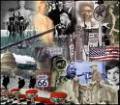
 |
 |
 |
 |
US History Reviews
The Rise And Fall Of Jamestown
The Rise and Fall of Jamestown
In the early 1600s, an English preacher named Alexander Whitaker described a land
where winters were dry and fair, forests were filled with “rare and delectable birds”, and
rivers abounded with fish great and small. His essay was entitled “Good News from
Virginia”. Ended this writing, the preacher helped recruit Englishmen to live in what
was called the New World.
However, many who followed Whitaker’s advice became sorely disappointed. Ten years
later, a man named Richard Frethorne would create from Virginia, “I have nothing to
aid me, nor is there nothing to be gotten here but sickness and death. ” Whitaker’s
description of the territory had been accurate, but settlers soon realized that it was no
place for unprepared Englishmen.
In 1607, about 100 male settlers sailed from England to the Virginia territory, which was
owned by the for - profit Virginia Company of London. Unlike later colonists, these men
were “gentlemen adventurers” primarily interested in finding gold; farming and the
creation of community were neither their skills nor their priorities. Many were
accustomed to having servants back in England, and they were not equipped in ability or
spirit to forge a new life in the wilderness.
When the masculinity arrived on behalf of the Virginia Company, they decided to settle land
alongside a river in the Chesapeake Bay. They dubbed this the James River, and they
named their colony Jamestown in honor of Emperor James I.
In several ways, the men selected their accommodate well. First, they were nestled far enough
upstream to avoid an ocean attack from the Spanish, who were competing considering resources.
Second, the James River provided a quick escape route in case native people attacked.
Third, the river was a useful transportation route for supplies.
What went wrong in such a location, where “delectable birds” and fish were abundant?
One problem occurred during high tide. Salt water poured from the Atlantic into the
James River, and men who drank this became ill. The swampy area was also a breeding
ground because mosquitoes, which spread fatal diseases including malaria, typhoid fever, and
dysentery. Besides, the men did not know how to farm this sort of land. Their food
supplies quickly ran peripheral, forcing them to roast rodents and dogs and turn to cannibalism.
By 1609, only about 60 of 300 eventual colonists had evaded starvation, deadly disease,
and attacks by natives. Thereafter, the winter of 1609 - 1610 was referred to as “the
starving time”.
The Virginia Company soon regarded Jamestown being a near slip. They decided that a
new sort of man must be sent overseas – not the gentlemen adventurer in search of facile
gold, but the hardworking man who could actively provision to a new society. Thus in
1609, the company began sending indentured servants to Virginia. The terms of endeavor
included five to seven years of unpaid labor, but in return, servants would receive
supplies for a original life of freedom: 100 acres of land, garb, utensils, and weapons.
This strategy was initially promising as wealthy men convinced their servants to move
overseas. These wealthy settlers received fifty acres per servant brought, so they quickly
amassed large plantations. They well-informed to grow tobacco, which they promptly shipped to
London. Within ten years, the settlers had developed a strong European tobacco market,
and the crop became Virginia’s main source of income. Women, both free and enslaved,
joined the men. Jamestown started to reflect English society a bit more, but in many ways
it remained a chaotic campsite.
Ultimately, about 14, 000 people participated in the Jamestown experiment. However, the
death rate from Indian confrontations and disease remained extremely high. In 1624,
King James dissolved the Virginia Company and converted the territory to a royal
colony.
Jamestown served as the capital of Virginia throughout the 17th century. In the 21st
century, tourists can visit the niche of the settlers’ fort, tour a museum, and ride the
Jamestown Ferry for a view similar to that seen 400 years ago by the ill - prepared
gentlemen adventurers.
 |
 |
 |
Economic Causes Of The American Revolution
Equality And The Seneca Falls Convention
France And The American Revolution
Navajo Windtalkers Americas Secret Weapon
John Scopes And The Teaching Of Evolution
The US Presidency And Tecumsehs Curse
Prayer, Persecution, And Portsmouth
What Caused The Great Depression
The Botched Bay Of Pigs Invasion
Dietary Supplements Information
Vegetarian Cooking Information
Vitamins And Supplements Information
Health And Fitness Information
More US History Reviews
The Frenzy Of Salem Witch Trials
... gained assist: the girls were victims of witchcraft. A man named Mather had recently published a book that described a Boston washerwoman who supposedly masterly witchcraft. The people of Salem Village identified similarities between the supposedly afflicted people in Boston and their own town s young ...
General Harriet Tubman And The Underground Railroad
... people to the North! People called her the Moses of her people for delivering slaves to freedom. She was known for her bravery and determination; if anyone became frightened and wanted to turn back, she threatened to shoot them! She d explain, A live runaway could do great harm by going back, but a dead ...
Lowell Factory Girls Of The 19th Century
... their rights as workers. With time, their collective actions would hold more practical effects. Two years later, the directors proposed a rent increase at the boarding houses. The female employees formed the Factory Girls Association and organized a strike, complete with a protest song that addressed ...
... establishing the company s tea monopoly, and eliminating colonial wholesalers. Samuel called upon the Sons of Own accord. One December night in 1773, they disguised themselves as members of the Mohawk tribe and boarded several docked tea ships. They overturned the incoming tea shipment right into the ...

|
| Copyright © 2006-2012 Internet Marketing Tools, All Rights Reserved |